Sleep Hygiene: Essentials
There is nothing quite like a really great sleep. You awaken refreshed and have revitalized all your systems and feel energetic and happy.
SLEEP HYGIENE
Calen Rey
7/9/20249 min read

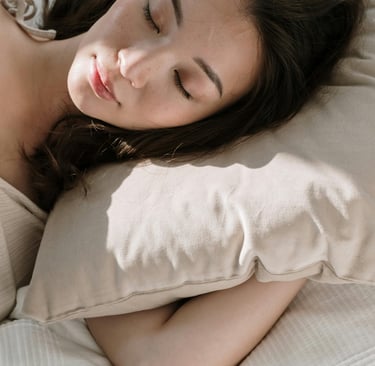
Empower Your Journey
This post may contain affiliate links for which
I may receive a commission from purchases
made through the links
Good sleep is key for our health and happiness. Yet, many find it hard to fall and stay asleep. The answer lies in good sleep hygiene. This means the right sleep space and habits for quality rest.
Boosting your sleep hygiene can change how you feel. You'll wake up feeling refreshed and ready to go. By making your sleep space better, sticking to a sleep schedule, and adopting good bedtime routines, you can control your sleep. This improves your health and life quality.
It is also important to reduce light and noise. Use curtains or masks to block light. For noise, try a white noise machine or earplugs. This helps you sleep better and longer.
Weighted Blankets have also proven to be effective for a better night's sleep. They work by providing deep pressure stimulation which relaxes the nervous system and mimics being hugged
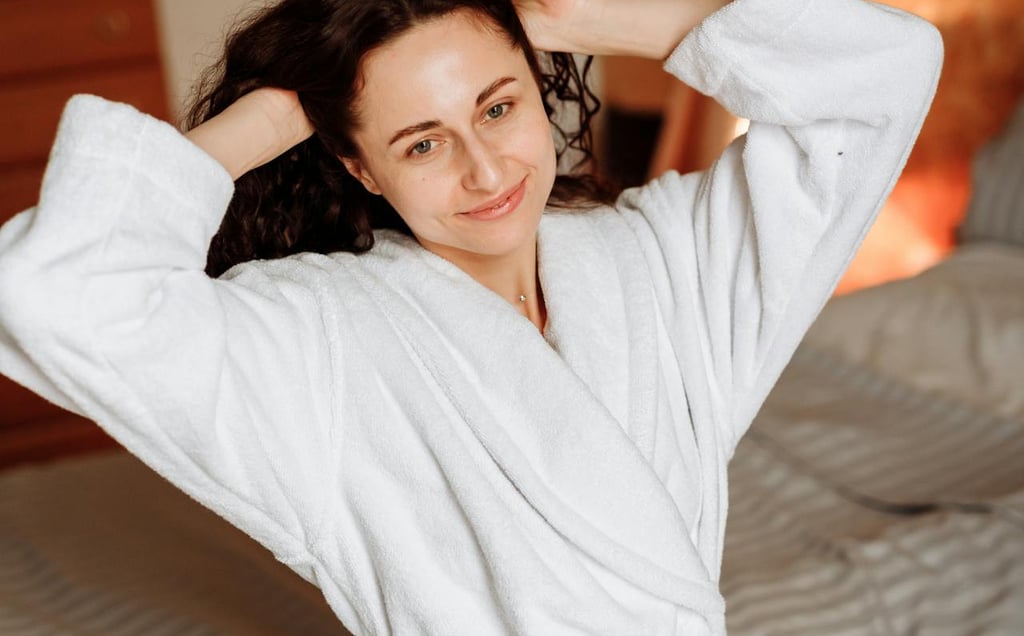

Key Takeaways
Sleep hygiene is about your sleep space and habits.
Good sleep hygiene is crucial for quality sleep and a healthy cycle.
Improving your sleep environment, schedule, and bedtime habits can greatly enhance your sleep.
Dealing with sleep problems through hygiene can boost your health and happiness.
Using sleep hygiene strategies is a safe and effective way to better your sleep.
What is Sleep Hygiene?
Sleep hygiene is about the habits and practices that help you sleep well. It includes the things you do, your sleep environment, and your routines. These factors can greatly affect your sleep habits and sleep behaviors. They also impact your sleep quality, mental health, and physical health.
Don't be afraid to experiment with new sleep modalites. One such such idea comes from Mindlax and is gaining more recognition. It generates alpha waves for deeper faster sleep which is a drug-free alternative to counting sheep.
The Importance of Good Sleep Hygiene
Good sleep hygiene is key for your body and mind to work well. It helps you stay alert and focused during the day. It also boosts your mood and immune system.
Poor sleep hygiene can cause problems like tiredness and low energy. It can also raise the risk of serious health issues. By adopting healthy sleep habits and sleep behaviors, you can improve your sleep quality. This supports your mental health and physical health. Good sleep hygiene is a vital step towards better well-being.


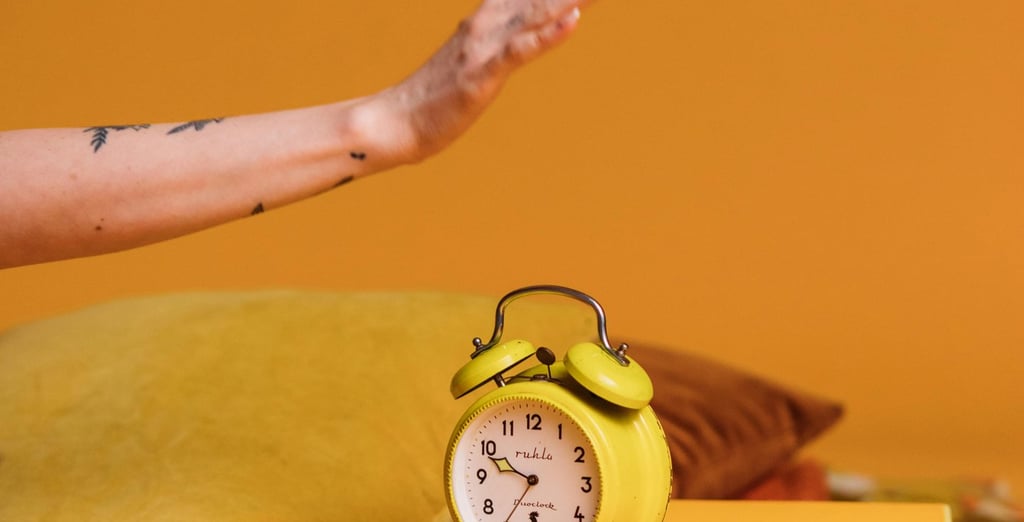

Insomnia Cures: Developing Healthy Pre-Bedtime Habits
Creating a consistent pre-bedtime routine can greatly improve your sleep. Relaxing activities in your nightly ritual tell your body it's time to sleep. This helps you get a good night's rest.
The Importance of Winding Down
The hours before bed are key for a smooth sleep transition. Calming pre-bedtime habits relax your mind and body. This makes it easier to fall and stay asleep.
Stay away from bright electronics. Instead, try reading, light stretching, or meditation. These activities boost melatonin production, helping you sleep.
Having a regular bedtime routine trains your body to relax and sleep. This is a big step towards better sleep and feeling refreshed.
Pre-Bedtime HabitBenefitsTaking a warm bathHelps relax muscles and lower body temperature for better sleepPracticing light yoga or stretchingReleases tension and prepares the body for sleepReading a bookEngages the mind in a calming activity and avoids exposure to blue lightListening to soothing musicCan induce a state of relaxation and drowsiness
"A good night's sleep is essential for our physical and mental well-being. By incorporating healthy pre-bedtime habits into your routine, you can take the first step towards achieving the restful sleep you deserve."
Optimizing Your Daily Routines
Good sleep hygiene is more than just bedtime habits. Your daily activities also play a big role. By paying attention to your daily habits, you can help your body sleep better.
Regular exercise is key. It helps your body get into a rhythm for sleep and wakefulness. Try to do at least 30 minutes of moderate exercise, like walking or yoga, every day.
Watch what you drink, especially caffeine and alcohol. Too much caffeine or alcohol before bed can mess with your sleep. Stick to caffeine in the morning and avoid alcohol at night.
Smoking is bad for sleep too. Nicotine in cigarettes can keep you awake. If you smoke, try to quit or avoid it before bed.
Also, think about what you eat. Eating heavy or spicy foods before bed can make it hard to sleep. Eat a balanced diet and avoid big meals or snacks before bed.
By making these changes, you can improve your sleep. Small steps can lead to big improvements in your sleep health.
Daily HabitRecommendationPotential Impact on SleepExerciseAim for 30 minutes of moderate activity most daysRegulates circadian rhythm and promotes better sleepCaffeineLimit intake to earlier in the dayStimulant can interfere with falling asleepAlcoholAvoid close to bedtimeDisrupts sleep quality later in the nightSmokingQuit or avoid close to bedtimeNicotine is a stimulant that can make it harder to sleepEatingEat balanced, nutrient-rich meals and avoid large, indulgent snacks before bedHeavy, spicy, or sugary foods can cause discomfort and make it difficult to fall asleep
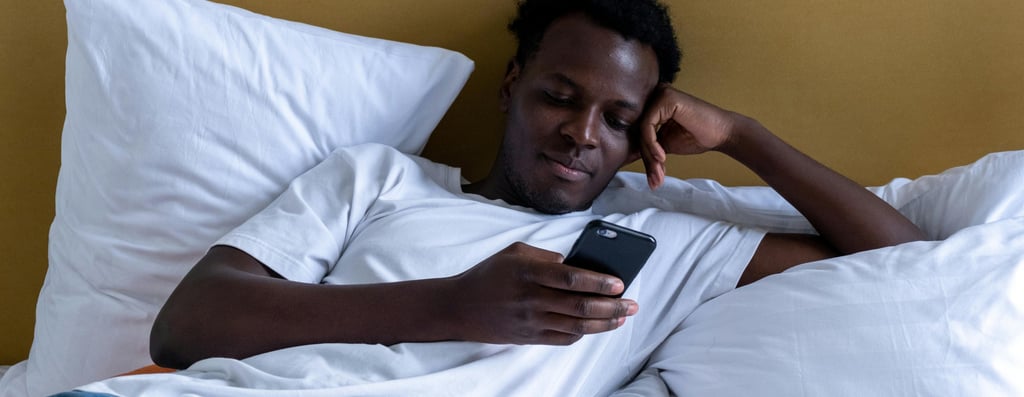

"Getting enough quality sleep is one of the most important things you can do for your overall health and well-being."
Creating a Sleep-Conducive Environment
Making your sleep environment perfect is key to good sleep hygiene. Your bedroom setup should be calm and free from things that disturb you. Choosing the right mattress and bedding and controlling temperature, light, and noise are important steps.
Start with a mattress that feels right for you. Then, add soft, breathable sheets and a warm comforter for comfort. Keep the room cool, between 65°F and 70°F, for the best sleep.
It's also important to reduce light and noise. Use curtains or masks to block light. For noise, try a white noise machine or earplugs. This helps you sleep better and longer.
Weighted Blankets have also proven to be effective for a better night's sleep. They work by providing deep pressure stimulation which relaxes the nervous system and mimics being hugged
Creating a sleep-conducive environment means paying attention to all factors that affect sleep. By improving your bedroom setup, you're on the path to better sleep. Your body and mind will thank you.
Establishing a Consistent Sleep Schedule
Having a consistent sleep schedule is key to good sleep hygiene. Sticking to a regular bedtime and wake-up time, even on weekends, helps your body's natural sleep cycle. This routine makes sleep a vital part of your day, helping your brain and body rest fully.
Putting sleep first and making small changes to your schedule can help adjust your sleep times as needed. Taking naps can also be good, but they should be short and in the early afternoon. This avoids messing up your consistent sleep schedule.
Creating and keeping a consistent sleep schedule is vital for better sleep quality. It ensures your body gets the rest it needs.
"The best bridge between despair and hope is a good night's sleep." - E. Joseph Cossman
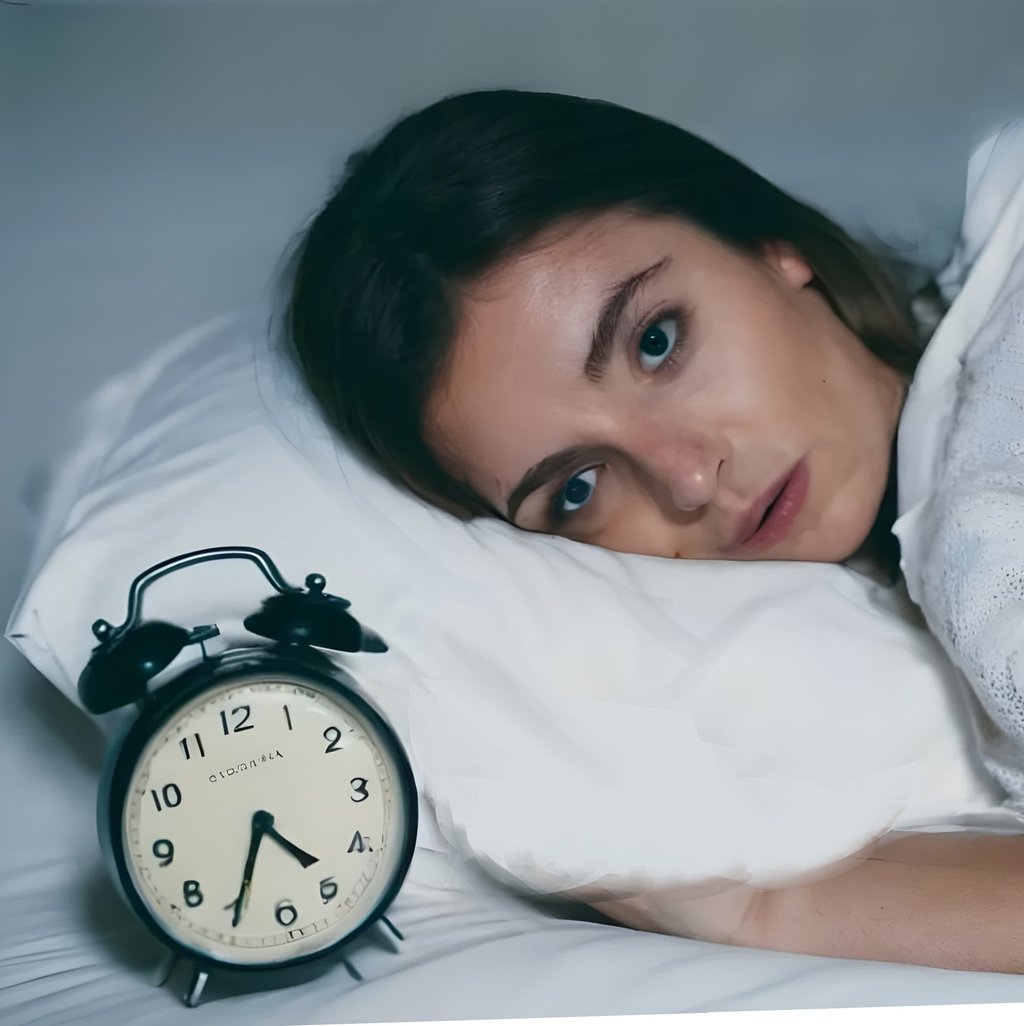

"Implementing small, positive changes to your daily habits can have a significant impact on the quality of your sleep."
Sleep Hygiene for Shift Workers and Travelers
Getting good sleep is hard for those with irregular work hours or who travel a lot. They deal with disrupted sleep patterns, different light conditions, and irregular schedules. These factors make it tough to get quality sleep.
For shift workers and travelers, it's key to focus on sleep hygiene. Managing light exposure is a big part of this. Use dim, warm-toned lights at night to help your body stay in sleep mode. When traveling, getting natural daylight helps adjust to new time zones faster.
Having a calming bedtime routine is also important. Activities like reading, stretching, or meditation can help signal sleep time. Keeping a regular sleep schedule, even with non-traditional hours, is also helpful.
By focusing on these sleep hygiene tips, shift workers and travelers can improve their sleep quality. This is crucial for their overall health and well-being.
Sleep Hygiene Strategies for Shift WorkersSleep Hygiene Strategies for Travelers
Minimize exposure to bright light during night shifts
Establish a consistent sleep schedule, even with irregular work hours
Invest in blackout curtains or an eye mask to create a dark sleep environment
Avoid caffeine and stimulants close to bedtime
Seek out natural daylight exposure to help adjust to new time zones
Maintain a consistent sleep schedule, even when traveling
Use earplugs and a sleep mask to create a comfortable sleep environment
Avoid heavy meals and alcohol close to bedtime
By using these sleep hygiene tips, shift workers and travelers can better manage their sleep challenges. This helps improve the quality and length of their sleep.
Addressing Persistent Sleep Issues
Improving sleep hygiene can help many people sleep better. But, it might not solve all sleep problems or disorders. It's important to talk to a healthcare professional for other treatment options.
People with persistent sleep issues or insomnia might need different solutions. They could try sleep medication or cognitive behavioral therapy for insomnia (CBT-I).
Sleep Medication: A Temporary Solution
Sleep medications can help with sleep disorders for a short time. But, they should only be used with a doctor's advice. They can lead to addiction and side effects. Doctors usually suggest them for a short period, aiming for better, non-medical solutions later.
Cognitive Behavioral Therapy for Insomnia (CBT-I)
Cognitive behavioral therapy for insomnia (CBT-I) is a top choice for persistent sleep issues. It helps people change their thoughts and actions that affect sleep. Through sleep restriction, stimulus control, and cognitive restructuring, CBT-I can end insomnia and improve sleep quality for good.
Treatment Options for Persistent Sleep IssuesProsCons Sleep Medication
Provides short-term relief
Can be helpful for certain sleep disorders
Risk of dependency and side effects
Not a long-term solution
Cognitive Behavioral Therapy for Insomnia (CBT-I)
Highly effective for long-term improvement
Addresses the root causes of sleep issues
No medication required
Requires commitment and active participation
May take several weeks to see results
For those with persistent sleep issues or sleep disorders, finding the right treatment is key. A mix of sleep hygiene, sleep medication, and cognitive behavioral therapy for insomnia can help. This way, people can overcome their sleep problems and feel better overall.
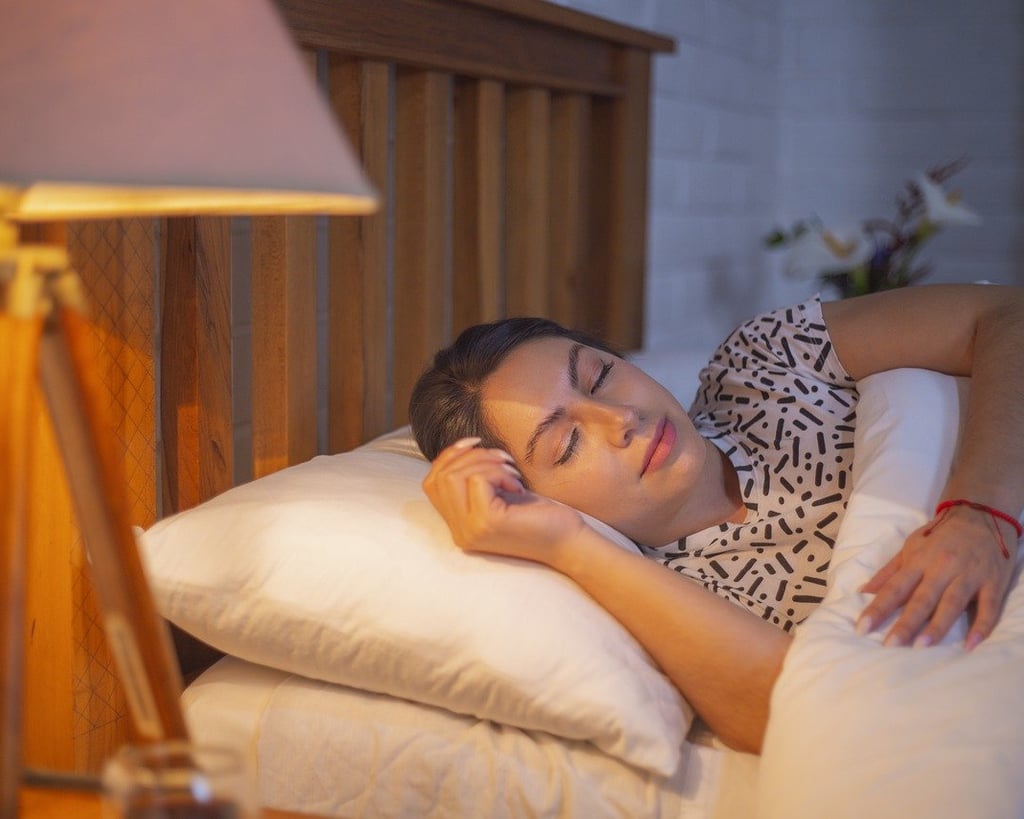

Conclusion
Learning about sleep hygiene can greatly improve your sleep. By making your bedroom sleep-friendly and sticking to a bedtime routine, you can sleep better. This not only makes you feel more awake but also boosts your health and happiness.
Good sleep leads to better health, more energy, and a happier life. By focusing on sleep hygiene, you're choosing a healthier, more vibrant life. Remember, a good night's sleep is key to a balanced life.
To get the most from sleep hygiene, start making small, steady changes. Embrace the power of sleep hygiene and begin your journey to a fresher, healthier you.
FAQ
What is sleep hygiene?
Sleep hygiene means following healthy habits to get good sleep. It's key for your mental and physical health. Good sleep improves your life quality.
Why is good sleep hygiene important?
Your daily habits affect your sleep. This includes what you eat, drink, and your schedule. Improving your sleep is possible with the right steps during the day and before bed.
What are the components of a sleep-conducive environment?
A calm bedroom helps you sleep better. You need a comfy mattress, pillows, and bedding. A cool room, dark, and quiet are also important.
How do I establish a consistent sleep schedule?
Stick to the same sleep and wake times, even on weekends. Prioritize sleep and adjust your schedule slowly. Short naps in the afternoon can help.
What are some healthy pre-bedtime habits?
A calming pre-sleep routine is key. Try a warm bath, stretching, meditation, or reading. Avoid bright lights and screens before bed to help you sleep.
How can I optimize my daily routines for better sleep?
Positive daily routines support your sleep. Regular exercise, avoiding caffeine and alcohol, and mindful eating help. These habits improve your sleep quality.
How can shift workers and frequent travelers improve their sleep hygiene?
Manage light exposure and create a relaxing bedtime routine. Try to keep a consistent sleep schedule. These strategies help shift workers and travelers sleep better.
When should I seek professional help for persistent sleep issues?
If sleep hygiene doesn't solve your sleep problems, seek help. A healthcare professional can offer treatments like medication or therapy for insomnia.
